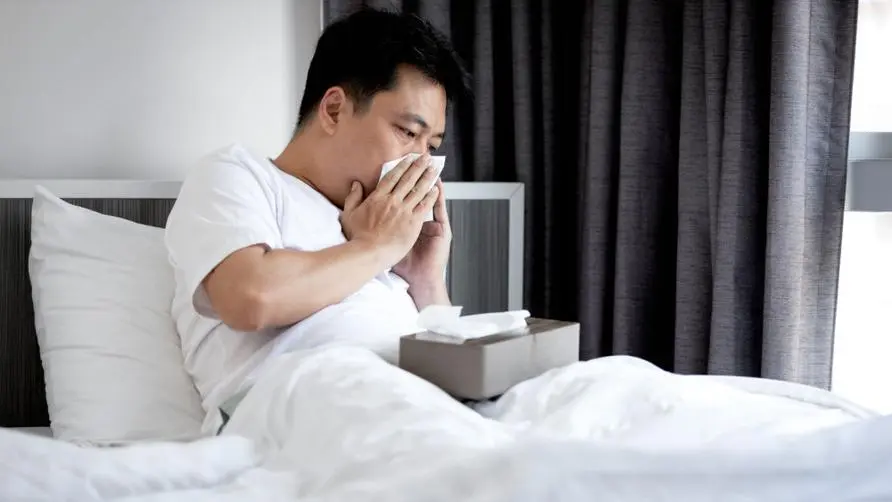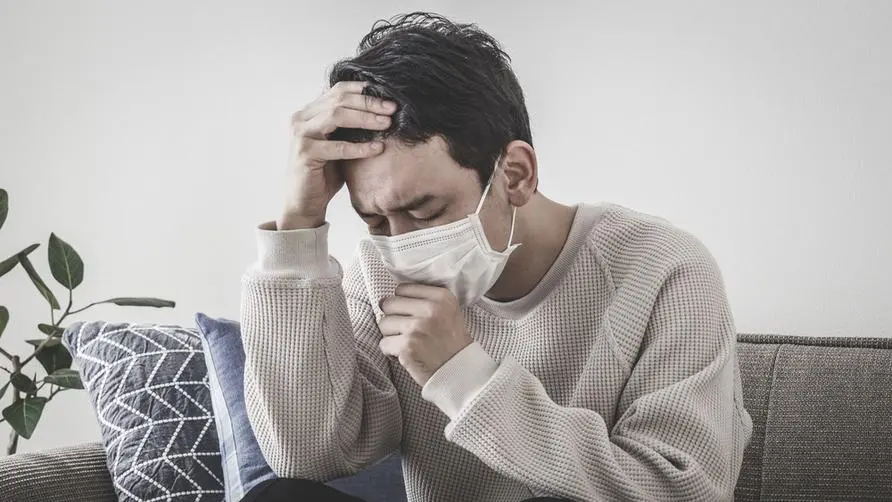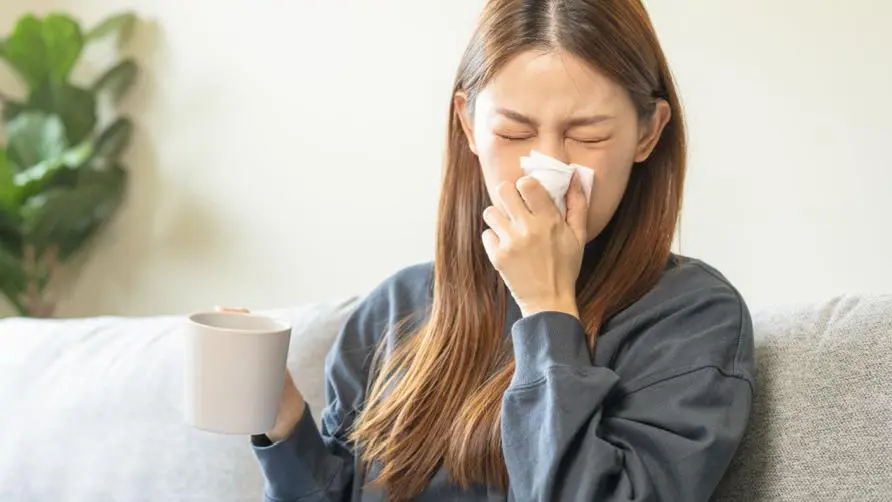Is the constant sneezing a "cold" or an "allergy"? Taiwan Food and Drug Administration reveals the difference in seconds with "5 methods"

As winter and spring transition, the temperature difference between morning and evening is large. If you start sneezing or running nose, how can you tell whether it is a “cold” or an “allergy”? The Taiwan Ministry of Health and Welfare, Food and Drug Administration explains that if the symptoms of sneezing and runny nose last for more than 2 weeks or even more than 1 month, the nasal discharge is relatively clear, and is not accompanied by symptoms such as fever, sore throat, general weakness, etc., this situation It may be that the nasal mucosa is exposed to allergens, causing “allergic rhinitis”.
Is the constant sneezing a cold or an allergy? Taiwan Food and Drug Administration reveals “5 methods” to clearly distinguish
The Taiwan Food and Drug Administration emphasizes that many substances in the daily environment may be allergens, such as dust particles, mold, cigarettes, cat and dog fur, etc. Once exposed, allergies may occur, and this may occur throughout the year. It belongs to “perennial allergic rhinitis”; while “seasonal allergic rhinitis” is caused by pollen, seeds and other fine substances flying in the air every time the seasons change, especially when the flowers bloom in spring. These small molecules may be judged by the body. Act as allergens, which in turn produce an immune response, leading to sneezing, runny nose, and even allergic symptoms such as itchy eyes and nasal congestion.
In fact, no matter which of the above conditions, avoiding exposure to allergens is crucial. Take pollen allergies as an example. People with allergies should avoid going out in the early morning when pollen levels are high, and remember to close the doors and windows at home to reduce exposure. Some people are more sensitive to particulates in the air. It is recommended that before going out, they can check the “Air Quality Monitoring Network” of the Ministry of Environment to understand the air quality indicators of the day, such as the concentration of fine suspended particulates (PM2.5).
What is the difference between the first generation and the second generation of “antihistamines” that help suppress allergic reactions?
If you have reduced or avoided contact with allergens but still experience symptoms of allergic rhinitis, you should seek medical attention as soon as possible to control the condition. Taiwan Food and Drug Administration recommends that you go to pharmacies or medical institutions for help, and under the instructions of doctors and pharmacists, take “antihistamines” or use “nasal sprays” to relieve relief according to individual circumstances; among which “histamines” are A chemical substance in the human body that is related to the body’s immune response.
Taiwan Food and Drug Administration explains that excessive secretion of histamine may cause allergic symptoms; the main mechanism of antihistamine drugs is to reduce the runny nose, sneezing, etc. caused by allergies by blocking the body’s absorption of histamine. Discomfort.
Common antihistamines on the market are divided into first-generation and second-generation. The first-generation antihistamines have been on the market for a long time (such as chlorpheniramine). They have a good effect in relieving allergy symptoms, but they have side effects of drowsiness, so they must be avoided while driving or driving. Take before operating equipment. In addition, people with prostate hypertrophy causing difficulty in urinating or glaucoma are not suitable to use first-generation antihistamines.
Second-generation antihistamine drugs (such as Cetirizine and Loratadine) have fewer side effects than first-generation drugs. They act quickly and last longer after taking the drug, and they have less side effects of drowsiness. Because it is more specific for anti-allergy, it will not affect the parasympathetic nerves like the first-generation drugs, and can reduce the problems of dry mouth, constipation, and irregular urination.
Does overuse worsen nasal congestion? Taiwan Food and Drug Administration reveals the key differences between 3 types of nasal sprays
Since oral drugs are absorbed systemically, in order to avoid systemic side effects and increase the concentration of the drug in the nasal cavity to improve efficacy, doctors may prescribe nasal sprays after assessing the patient’s individual condition. Common ingredients in nasal sprays include antihistamines, decongestants, and steroids.
Among them, nasal decongestants (common ingredients such as Oxymetazoline, Xylometazoline, Naphazoline) can unblock the nasal cavity by constricting the peripheral blood vessels of the nose. They act quickly and are used to relieve symptoms of nasal congestion. They need to be used 2-3 times a day. However, long-term use can easily cause nasal congestion. The mucous membrane is too thin, thus causing rebound nasal congestion. It is recommended to use it for a short period of 3-5 days.
Steroid nasal sprays can regulate the immune response and improve inflammation of the nasal mucosa. If a doctor has diagnosed chronic allergic rhinitis, you can choose a nasal spray containing steroids (such as Fluticasone Propionate). Unlike nasal decongestants, steroid nasal sprays need to be used continuously for at least 1 week to be effective, so they need to be used regularly. Since they are absorbed through the nasal cavity, they are less likely to produce systemic adverse reactions.
How to use nasal spray? You can only use it after completing the key 1 action!
The Taiwan Food and Drug Administration reminds you that no matter what kind of nasal spray ingredients you use, you need to pay attention to the following usage methods: First, if you choose a nasal spray suspension, you need to shake it evenly before use. Furthermore, nasal sprays that are used for the first time or have not been used for more than 2 weeks need to be pressed into the air several times until a uniform spray of liquid is sprayed out before use. In addition, every time you use nasal spray, you must clean your nose first, then put the nozzle into one nostril, press the other nostril with your hand, press the medicine into the nasal cavity, and inhale slowly and deeply at the same time, inhale the medicine liquid from the nasal cavity. And exhale slowly through your mouth. After spraying one side, repeat the same step on the other nostril. Finally, wipe the nozzle with tissue paper and put the cap back on.
Finally, the Taiwan Food and Drug Administration reminds that to combat allergic rhinitis, factors that cause allergies can be minimized through lifestyle habits, such as cleaning the living environment frequently to keep it clean, and using air purifiers or dehumidifiers to reduce allergies in the environment. Original. In addition, you can also develop good habits of getting enough sleep, eating a balanced diet, and exercising regularly to improve your allergies by strengthening your own physique.
Source:
Safety Weekly No. 955 - I keep sneezing, is it a cold or allergic rhinitis?
Further reading:





